The dark web is usually flagged as a shady place for illegal activities. While this black part of the web has a mysterious nature and a notorious reputation, it also has several legal and positive uses. No matter how useful it is, the dark web is still considered illegal. Accessing it through a normal browser is like a tough nut to crack.
You will need a privacy-friendly browser like Tor Browser. Unfortunately, only Tor browser isn’t enough to give you access to the dark web, you will need something else; A VPN. It hides your IP address and helps you achieve the maximum level of anonymity. However, not all VPN services work with the dark web.
Therefore, after testing, we have curated a list of the best dark web VPNs. We will discuss each service’s security and privacy features and how to use them securely.
Best VPNs for dark web – Quick list
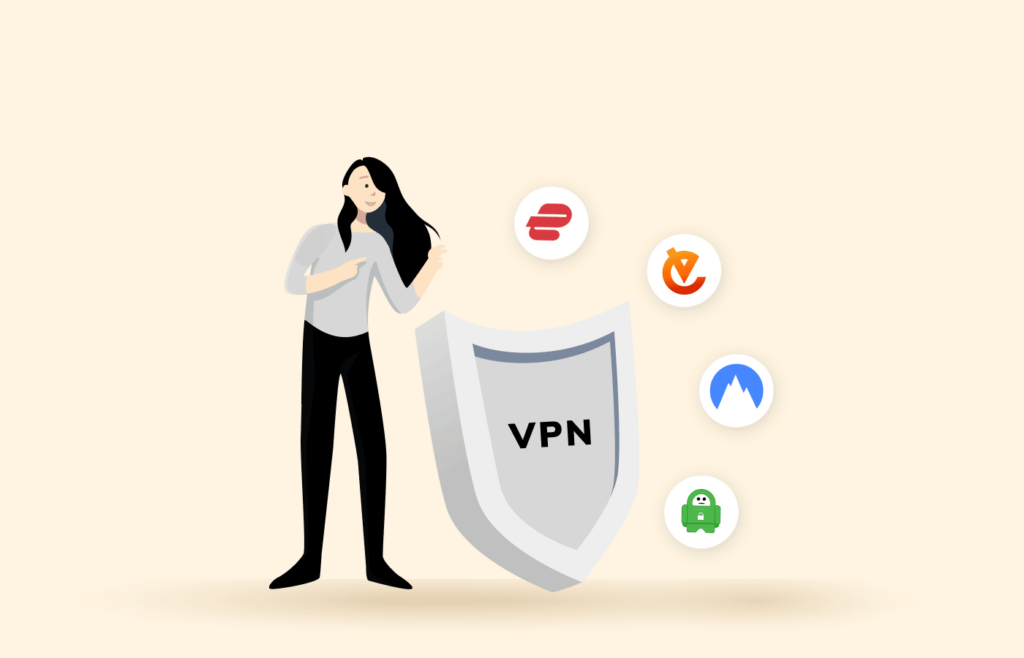
Short on time? Here’s a quick list of our top VPN services to use with dark web and what differentiates them from others.
- NordVPN: Premium, high-quality VPN for surfing the dark web. NordVPN ensures maximum security and privacy and has customizable dark web settings for extra protection.
- ExpressVPN: Our top pick for surfing the dark web. ExpressVPN’s advanced security features protect you from various risks that may arise from using the dark web.
- Proton VPN: Lightweight VPN for connecting to the dark web. A freemium VPN in the market, and one of the most robust, by the number of available servers.
- Total VPN: Multi-featured VPN for maximum security when surfing the dark web.
- ExtremeVPN: New and reliable VPN for the dark web. ExtremeVPN is a recently-launched VPN with modern privacy features for surfing the dark web.
How to access the dark web with a VPN: A step-by-step guide
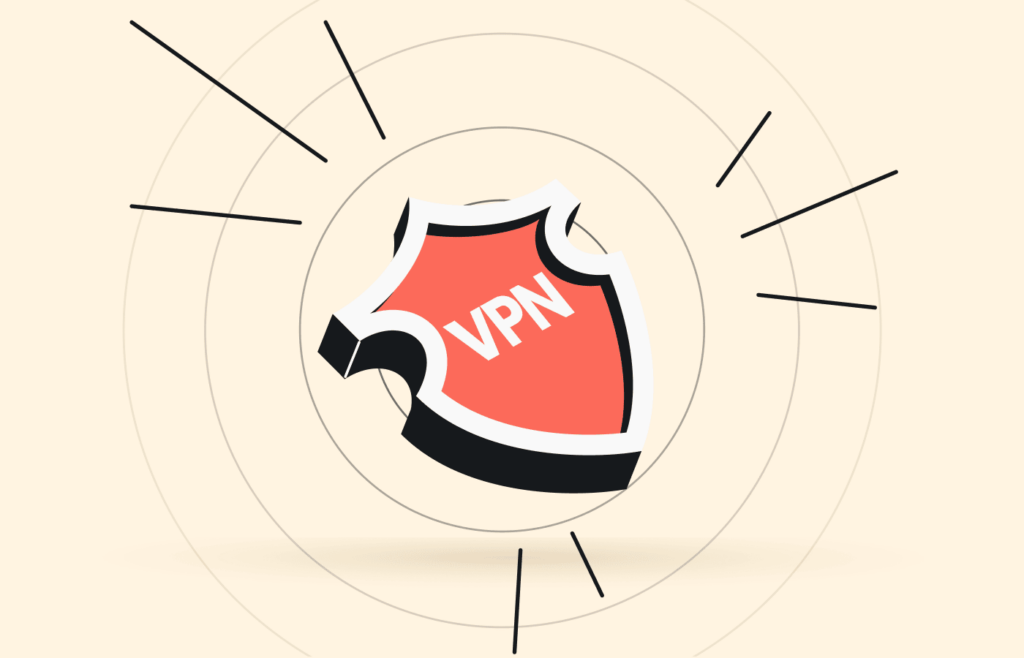
- Choose a trusted VPN provider – There are many VPNs on the internet today; choose from any of the ones on our list.
- Subscribe to any desired plan – VPN providers typically offer a monthly, annual, 2- or 3-year plan. The longer the duration, the cheaper the fee, but the higher your initial payment. Subscribe to the one you can afford that provides your desired features.
- Install the VPN app on your device – Visit the VPN’s website or browse through your device’s app store to download and install your desired VPN’s app. Open it and log in with the registration details you created while subscribing.
- Configure the app and enable safety features – Configure the app to your taste and set up safety features, such as the kill switch and the malware blocker.
- Connect to an obfuscated server – This step is crucial if you live in a censorship-heavy country where browsing Tor could be problematic. Each VPN may have its unique way of obscuring servers, and you may need to check your chosen VPN’s website.
- Open Tor and start browsing – Download, install, and set up Tor from the official Tor project website. Open it and start exploring your favorite dark web pages.
Why do I need a VPN to access the dark web?
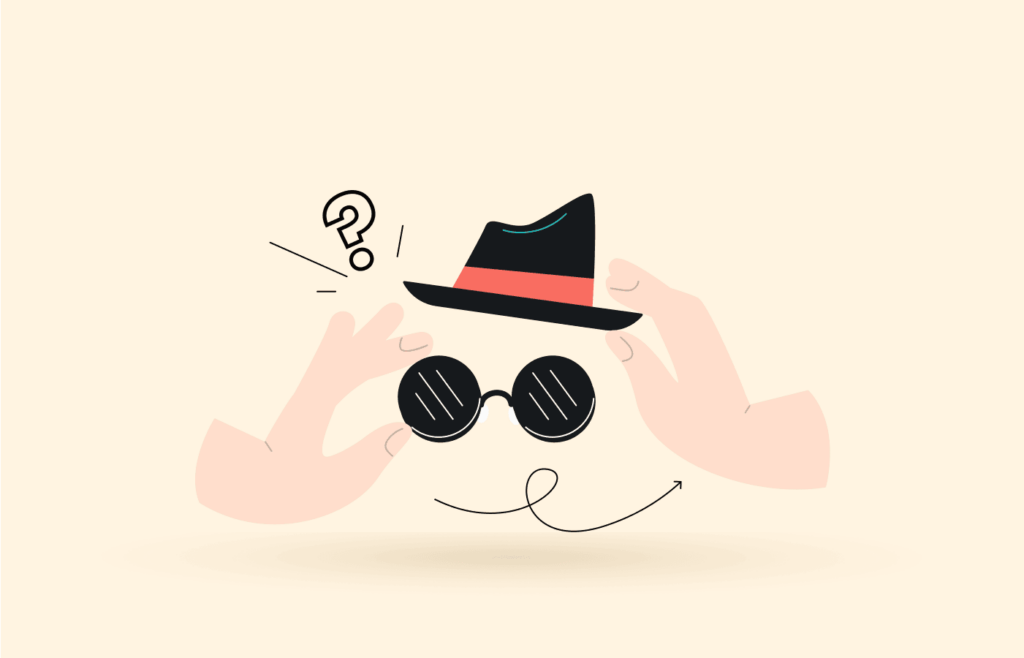
VPNs are not essential for accessing the dark web, but they can help keep you safe. You need Tor, an anonymous browser, to visit websites on the dark web, which may attract your ISP’s attention and other law enforcement agencies.
Tor (The Onion Router) directs traffic over a free, worldwide volunteer overlay network of more than 7,000 relays. Using the Tor browser, it becomes difficult for third parties to know where you are. However, due to its deep association with the dark web, ISPs are always on the lookout for users on the Tor network and their activities.
While Tor contains some safety and privacy features, these are not reliable. Tor’s relay networks, commonly known as “nodes,” are vulnerable, and government and intelligence agencies often target them. Using a VPN with Tor helps provide additional security and privacy, and protects against these vulnerabilities.
The dark web is also full of hackers and cybercriminals with malicious intent. With a VPN, you can mask your identity and perform your business safely.
Finally, you may also need a VPN for censorship when accessing the dark web. Countries with harsh internet policies, like China, restrict the Tor project website or other web pages where you can download the software. That means there’s no way to start accessing the dark web unless you first connect to a VPN.

These countries sometimes go to extreme lengths to block Tor traffic altogether. The Chinese government uses a firewall that restricts so many websites that it earned the name “The Great Firewall of China.” A VPN helps you bypass these restrictions.
Top-notch VPNs for the dark web – Detailed list
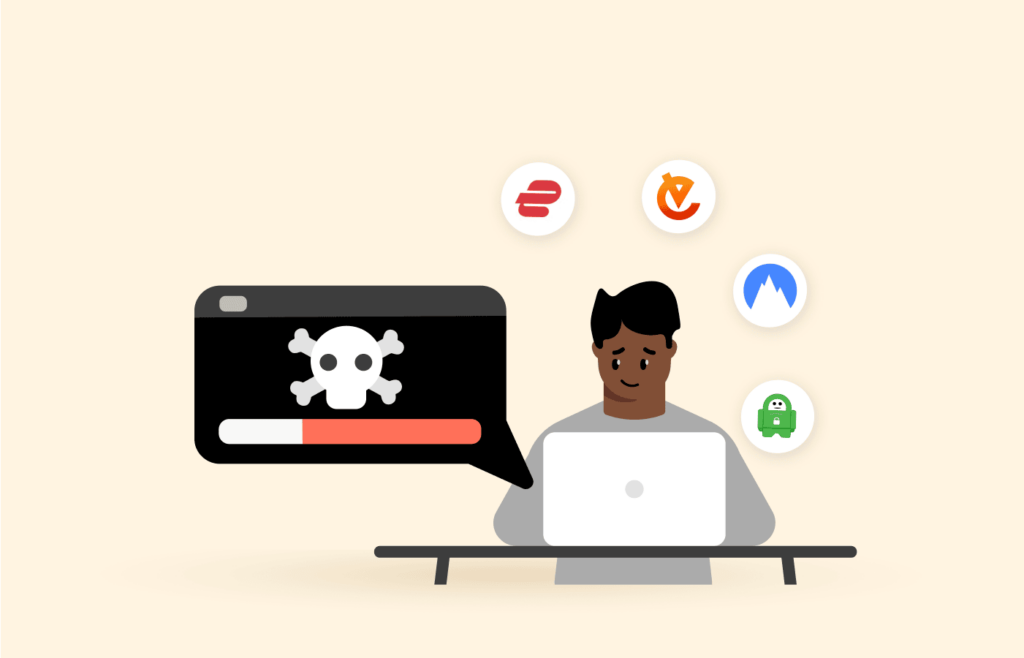
Here’s a comprehensive analysis of the best VPNs to browse the dark web safely.
1. NordVPN

A leading VPN service that prioritizes online security and privacy. It is known for its ease of use and blazing-fast connection speeds.
Pros
- Does not monitor users’ online activities
- Works with Tor, Freenet, Invisible Internet Project (I2P)
- Effective and efficient customer service
Cons
- Poorly optimized mobile apps
Already a household name in the VPN market, NordVPN’s developers keep upgrading it with new features to stay ahead of its competitors. One of the most trusted VPN services for dark web security, NordVPN effectively blocks malware, ads, web trackers, and other online threats.
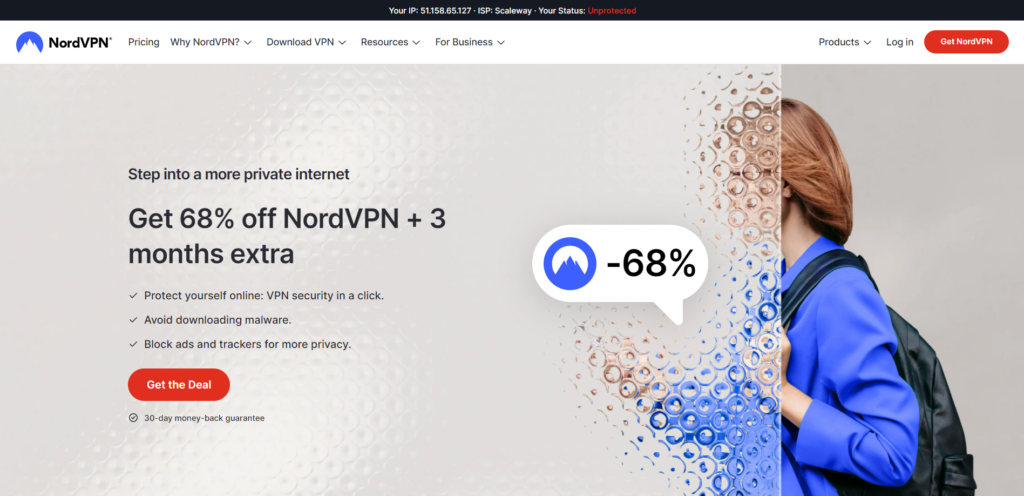
Conventionally, Nord also doesn’t log your data and uses AES 256 encryption. Moreover, it allows you to create your own private encrypted network for safe file sharing and work using its “Meshnet” feature. It is also one of the few VPNs with a dark web monitor; if your accounts ever get compromised, NordVPN will send you alerts.
The VPN also offers dedicated IP addresses, enabling you to access IP-restricted networks. If unsatisfied with these features, you have a 30-day money-back guarantee. You can also raise queries and make complaints via its 24/7 customer service.
2. ExpressVPN

A top-rated VPN service committed to online privacy and security. The VPN has servers in over 90 countries, allowing access to geographically restricted content and bypassing censorship anywhere.
Pros
- Excellent server speeds
- Formidable privacy and security features
- Simple and user-friendly interface
Cons
- Expensive than competitors
By popularity and trustworthiness, only a few VPNs come close to ExpressVPN. Since its launch in 2008, ExpressVPN has helped businesses and individuals take control of their online privacy and security.
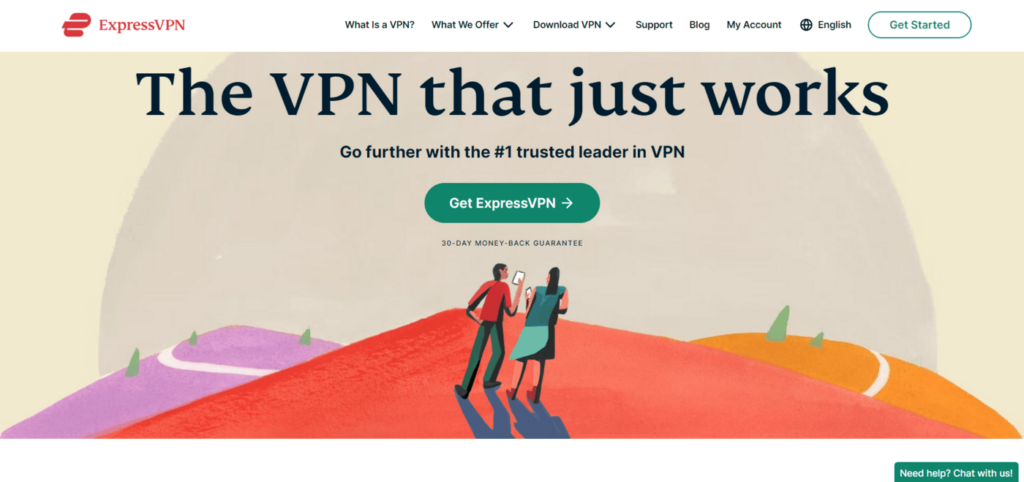
ExpressVPN works well with Tor, Freenet, and Invisible Internet Project (I2P). It has various features that keep you safe on and off the dark web. It uses 256-bit encryption for maximum data protection and has a no-logs policy. ExpressVPN is ready to prevent your IP address from ever falling into the wrong hands in the depths of the internet by preventing IPv6, DNS, and WebRTC leaks. “Network Lock” is the name of ExpressVPN’s kill switch, which is available across all major platforms.
ExpressVPN may look slightly overpriced, considering a monthly fee of $8.32, but it offers enough features to justify this rate. Nonetheless, if you find it unsuitable, you can claim a refund via its 30-day money-back guarantee through 24/7 customer support.
3. Proton VPN

A functional VPN service that can help you bypass even heavy censorship and access the dark web without any issue
Pros
- Easy access to the dark web
- User-friendly installation
- Has a free plan
Cons
- Limited features on free version
Proton VPN makes it on our list of recommended VPN services for the dark web due to its useful features. It has various customizable privacy functionalities that help you decide how to stay safe on the dark web. Moreover, it is very easy to install and configure it.
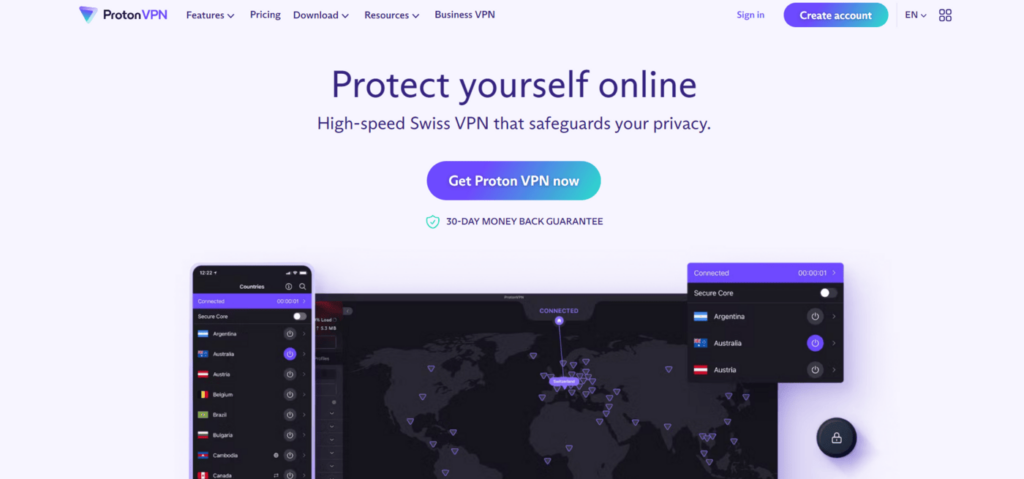
With it, you also get mainstream VPN features like the no-logs policy, 256-bit military-grade AES encryption, and multi-platform operability. It’s best monthly deal costs only $4.99 per month and has a free version.
Proton VPN runs over 13,000 servers in 100+ countries, making it one of the largest VPN providers by the number of servers.
4. Total VPN

Another user-friendly VPN service that works seamlessly well with the dark web and has several useful features.
Pros
- Affordable pricing
- Easy-to-use apps
- Advanced DNS leak protection
Cons
- Lacks P2P-friendly servers
Total VPN is a UK-based VPN service that launched in 2014. Since then, the VPN has grown immensely, and has a huge user base all over the world.
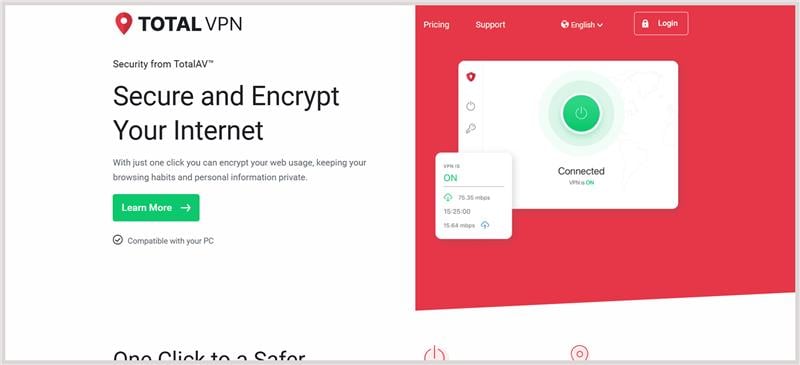
It boasts a user-friendly interface, making it easy for its users to use it without worry. The service mainly focuses on simplicity and doesn’t make things complicated.
Total VPN offers servers in more than 30 countries worldwide. Moreover, you don’t have to be frustrated by low speeds and lag, as the service offers exceptional fast upload and download speeds.
It has robust security and privacy features, such as 256-bit AES encryption. It hides your IP address and stops your ISP to throttle your internet connection and lets you enjoy the internet with freedom. With its built-in ad and malware blocker, you don’t need to worry about malware and those pesky ads.
5. ExtremeVPN
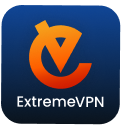
A credible VPN service that uses sophisticated encryption algorithms to protect user data and assure privacy. It offers an extensive server network and other impressive features.
Pros
- Highly resilient VPN with obfuscated servers, port forwarding, and multiport capabilities
- Numerous features at an affordable fee
- Responsive 24/7 customer support via various channels
Cons
- Lacks dedicated IP address
ExtremeVPN is a recently launched VPN with all the functionalities you’ll find in older VPNs and more. These include an extensive server network, state-of-the-art encryption, IPv6 and DNS leak protection, and a no-logs policy.
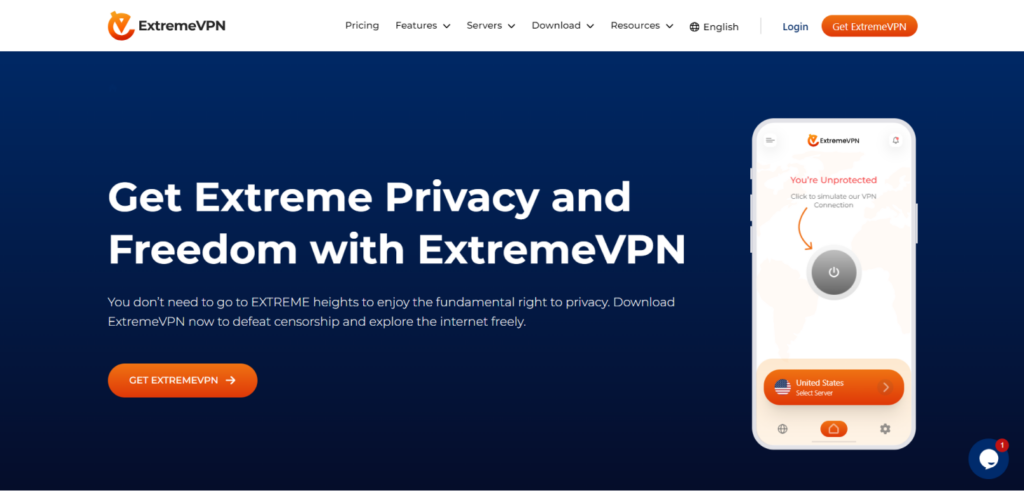
ExtremeVPN also has unique and advanced features, making it a must-have for the dark web. It uses obscure or obfuscated servers to hide VPN usage from ISPs and anti-VPN applications and services. ExtremeVPN also has multi-port and domain fronting capabilities, giving you a premium VPN experience.
Despite these various features, ExtremeVPN costs as low as $3.29/ month. Its customer support is swift and prompt, available via live chat and a dedicated help section on the website.
Best dark web VPN features: Quick comparison table
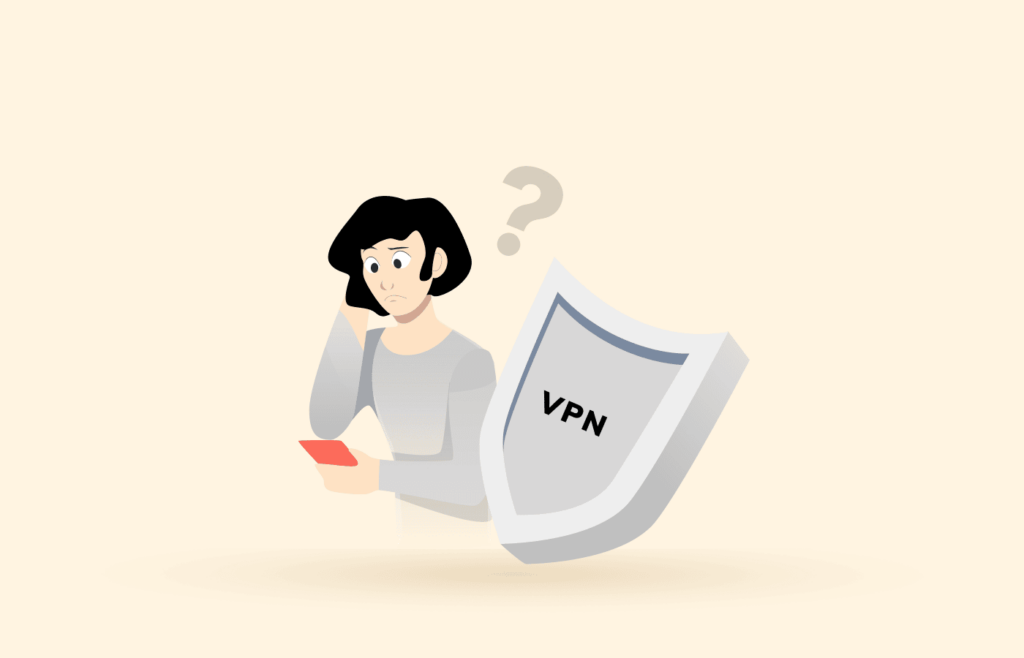
Below, you’ll find a table of the core information of our best VPNs for the dark web. This includes VPN speeds, deals, and features like obfuscated servers and malware blockers. You can compare these details and choose the one that best satisfies your needs.
| VPN | Best monthly deal | Speed | Number of servers | Ad, malware blocker | Obfuscated servers | 5/9/14 Eyes alliances jurisdiction | Money-back guarantee |
|---|---|---|---|---|---|---|---|
| NordVPN | $3.99 (save 71% on a 2-year plan) | Impressively-fast | 6,800+ servers in 113 countries | Yes | Yes | No | 30 days |
| ExpressVPN | $8.32 (get 3 months free and save 35% on the annual plan) | Blazing-fast | 3,000+ servers in 105 countries | No | Yes | No | 30 days |
| Proton VPN | $4.99 (get 70% off with a 2-year plan) | Fast | 13,000+ servers in 110+ countries | Yes | Yes | Yes | 30 days |
| Total VPN | $8.32 | Fast | Multiple servers in 30+ countries | Yes | No | Yes | 30 days |
| ExtremeVPN | $3.29 (billed at $39.48 for the first 12 months to save 68%) | Fast | 6,500+ servers in over 78 countries | No | Yes | No | 30 days |
Methodology for selecting the best dark web VPNs
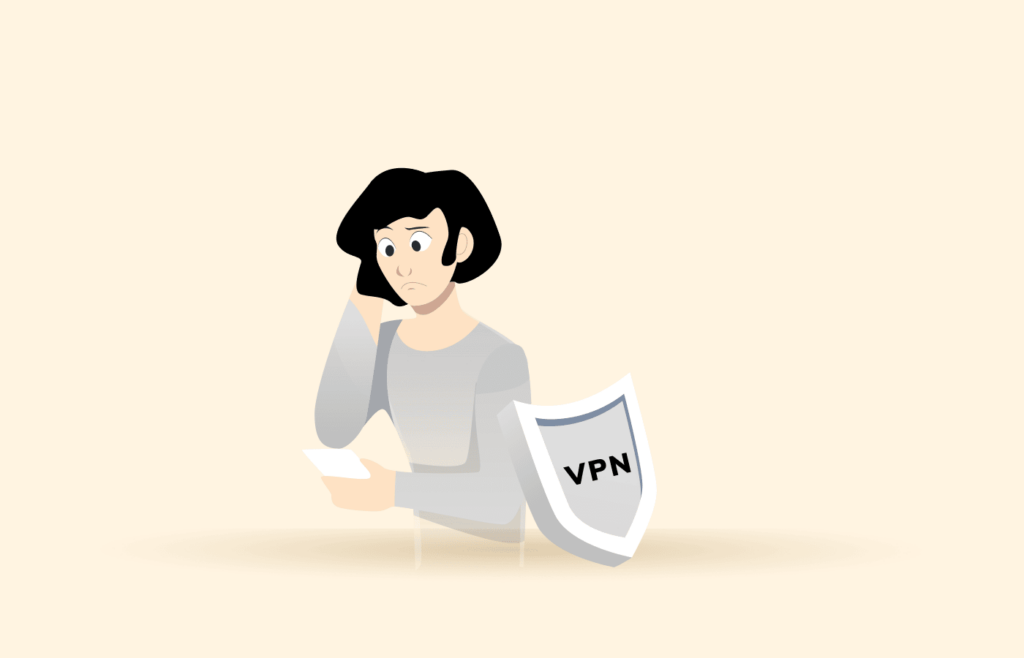
VPNs offer various features that may not be useful for the dark web. To choose the best one, we had to analyze various VPNs and narrow down the features that should be considered a must-have in a dark web VPN. Here are our results:
1. Security
VPNs should keep you safe online, whether on the surface web or the dark web. This is even more important for the dark web, as the inherent risks increase significantly.
A VPN should have at least AES-256 encryption to make it on our list. This is the current global standard and the same encryption that government agencies and military intelligence use. It should also protect against various IP address leaks and feature a working kill switch when the connection drops.
2. Logging policy
Every application you use can track your activities if you let it. This helps them determine inappropriate use, identify fraud, or complete certain actions. VPNs should never do this, though.
Virtual Private Networks are not online marketplaces or social media applications, which means they keep much more sensitive data. If a VPN’s logging policy doesn’t state that it clears this data after every session, ensure you avoid it. An unclear log is a potential haven for malicious actors like hackers and cybercriminals.
3. Server network
Often, the quality of a good VPN can be determined by its server network. The more extensive its network is, the greater your access to various online content. Sometimes, the server network can also influence the VPN’s speed.
Each of the VPNs on our list has thousands of servers in different locations. Even if you live in a censorship-heavy country, you can connect to a server in a more accessible region, open Tor, and browse your desired websites.
Numerous VPN servers in a location limit the load on any individual server, increasing speed and efficiency. Conversely, a VPN with only a few servers will have high latency, causing it to buffer and lag, due to multiple connections on a single server.
4. Server speed
The Tor browser uses a network of entry, middle, and exit nodes to reroute your traffic and keep you anonymous on the Tor network. This already slows down your browsing speed. Adding another VPN layer can cause a noticeable lag in connection speed and give an unpleasant experience.
For this reason, your chosen VPN should have high speed. The VPNs on our list use 10Gbps servers for maximum speed online. Server speeds often reach 100Mbps and sometimes exceed 200+Mbps in server-concentrated regions like North America and Europe.
5. Dark web support
None of the features listed above matter if your VPN doesn’t support the dark web. There are different ways to access the dark web, the oldest and the most common being the Tor browser and network. At the very least, your VPN should support Tor and allow you to visit .onion websites.
There are also other ways, including the Freenet and the Invisible Internet Project. The more a VPN supports, the better.
6. Location
Over the years, countries worldwide have formed intelligence alliances, including the 5 Eyes, 9 Eyes, and 14 Eyes. These alliances center around sharing and monitoring their citizens’ data for improved national security and law enforcement. You want your VPN to be from a region outside these alliances.
The members of the 5 Eyes alliance are the USA, UK, Canada, Australia, and New Zealand. These countries, alongside the Netherlands, France, Norway, and Denmark, make up the 9 Eyes alliance. The 14 Eyes alliance comprises all these countries, including Belgium, Italy, Germany, Spain, and Sweden.
To use VPNs from these locations, confirm that they have clear no-log policies and don’t submit users’ data to law enforcement agencies.
Most VPNs on our list originate from the British Virgin Islands, which is not a member of all the alliances, and all providers boast strong no-log policies.
Is it safe to access the dark web with a free VPN?
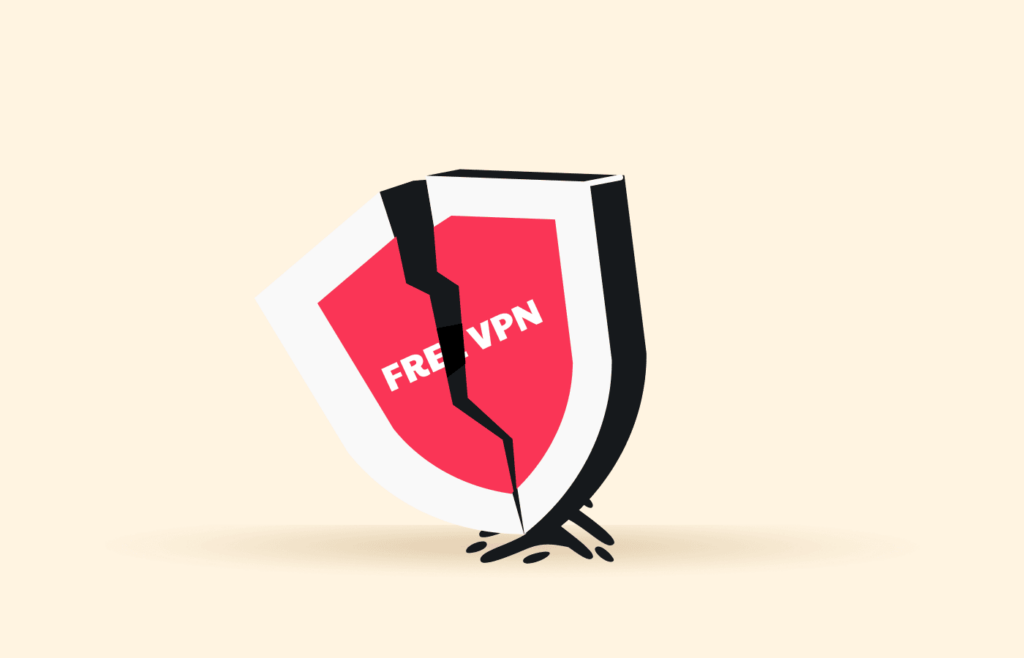
Free VPNs promise to provide the same services as premium ones but at no cost. Since running a VPN requires a significant investment, you may be curious about where they get the capital to fund that infrastructure.
Your skepticism is valid. It’s not uncommon to find free VPN providers selling their users’ details to various businesses and organizations. This can compromise your privacy and defeat the purpose of using a VPN.
Here are other reasons why you shouldn’t use free VPNs to access the dark web:
- Data limits — Free VPNs typically enforce some sort of data cap when you use their servers. This means the VPN may suddenly disconnect you even when you’re deep in your activities on the dark web, and privacy is of the utmost importance.
- Speed limits — Like data limits, free VPNs enforce speed limits. When you combine this with Tor’s three layers of data encryption, your internet speed will be significantly worse.
- Limited servers — Operating a quality VPN service requires an extensive network of functional servers. Free VPNs have limited servers serving thousands of people, further slowing network speed.
Free VPNs are also overrun with ads, both helpful and harmful. Imagine getting malware on your computer from clicking on an ad from your VPN provider. These reasons and more make free VPNs unsafe for accessing the dark web.
What is the dark web?
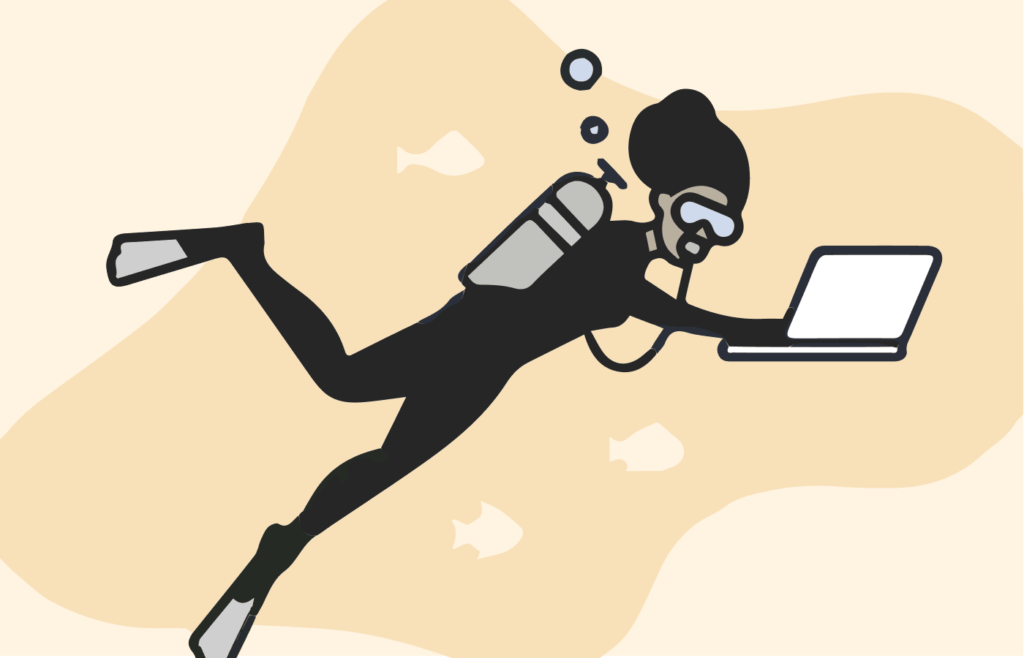
The dark web is the part of the internet that is unavailable in search engines’ indexes. It runs on overlay networks and requires specific programs, configurations, and authorization to access.
Like a black market, the dark web is infamous for largely criminalizing activities, such as pirated files, illegal substances, hacking, unlawful transactions, and stolen data on the dark web.
The sheer number of illegal activities on the dark web has been a growing concern for governments worldwide. For this reason, many have taken steps to police top dark web sites actively. This may be through improving the capabilities of domestic law enforcement agencies or enhancing information sharing among countries.
To better understand the dark web, it may be necessary to review the surface and the deep web:
The surface web
This internet section is readily available to the general public with standard search engines. The surface web is so large that Google’s index contains over 55 billion web pages.
Despite this enormous number, the surface web only consists of about 10% of all the information on the internet. This is similar to an iceberg, where the tip, the visible part, is a fraction of the entire iceberg.
The deep web
The deep web is any part of the internet that is inaccessible by search engines. This includes password-protected websites, the content behind paywalls, and email content. Accessing this section requires certain apps and special access.
You’re right if you’ve drawn parallels between the deep and dark web. The dark web is technically a subset of the deep web. On the dark web, content runs on overlay networks and uses encryption software to provide enhanced security or accessibility.
You can read more about the dark web from our well-detailed article here.
Is it legal to access the dark web?
Under most jurisdictions, accessing the dark web is legal and permitted. However, there are restrictions on the Tor network in countries such as China, Russia, and Iran. You could land in trouble if law officers catch you surfing the dark web in these countries.
Even in dark web-legal regions, you should be careful with your activities and clicks. Criminal masterminds, terrorists, and drug pushers typically coordinate their operations and recruit new members via the dark web. These are illegal activities, and you may face jail terms if caught in them.
NOTE: While visiting the dark web, don’t download or click on anything suspicious. Stay on the .onion sites.
How do I access the dark web on my iPhone safely?
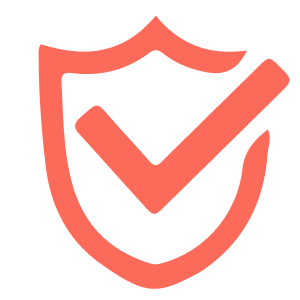
You must first download the Tor browser to use it on all compatible platforms, including Windows, Android, Mac, and Linux. This is the only way to access the Tor network and, subsequently, the dark web. The app isn’t available on iOS, so you may wonder, “How can I access Tor on my iPhone?”
You can use Onion Browser, which is owned by the Tor network. This app is available on the iPhone’s App Store and encrypts your Tor network traffic for maximum privacy.
A disclaimer on the Onion Browser website states,
Using Onion Browser does not guarantee security or privacy on its own. It simply provides a set of features that may enhance privacy and anonymity while browsing the web.
Your traffic and data on the browser may be safe, but not the other applications you use. This is why you need a VPN to protect every website and application you open during any connection. The VPNs on our list also support split tunneling, so you can decide which apps to protect and which not to.
Can my ISP see that I’m accessing the dark web?
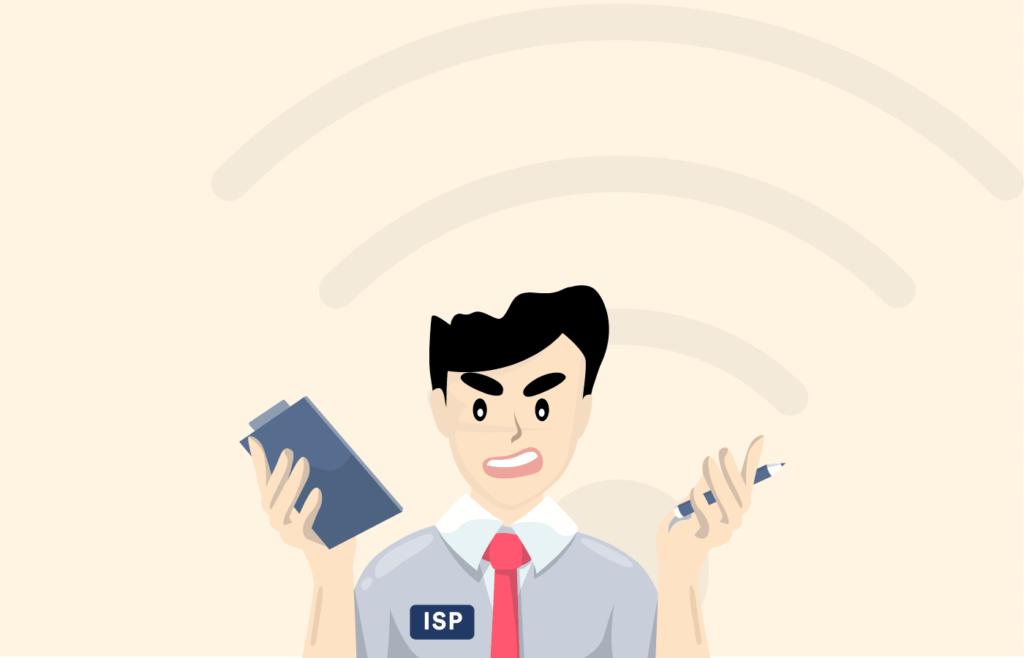
Both Tor and VPN encrypt your data and try to mask your identity to varying degrees. Tor sends your traffic through three nodes in different locations worldwide, making it difficult to pinpoint your location. However, these nodes are vulnerable, and ISPs often exploit these vulnerabilities.
That means ISPs may see that you’re accessing the dark web but not determine what you’re viewing. You can easily avoid this ISP tracking with VPNs using their advanced encryption capabilities.
Helpful safety tips for using the dark web
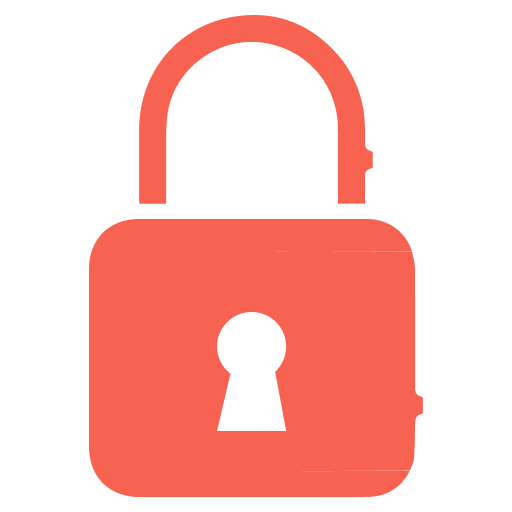
A VPN and Tor can augment your online security and privacy, but they can’t completely prevent every potential harm. They won’t protect the links you click or the forms you fill out, so you must also take extra safety precautions. Here are tips to follow when using the dark web:
- Second-guess all clicks — Be careful with what you click on the dark web. A wrong click can lead to illegal websites or malware, which can be dangerous and harmful.
- Never drop personal information — We strongly advise against dropping personal information on the dark web, whether to log in to a website or fill out a form. Instead, create anonymous accounts for all the websites and use those to log in when you visit.
- Know why you’re visiting — Before visiting the dark web, ensure you know why and what you want to achieve. This prevents you from wandering when you’re there.
- Disable Javascript — Hackers often use JavaScript to inject malicious code into a website, spread malware, and access personal information. Therefore, disabling JavaScript before entering the dark web is necessary to ensure your safety. While this move may affect the functionality of certain websites, it is better than risking your digital safety.
- Avoid social media and your email — When on the dark web, avoid regular internet pages like Facebook, Twitter, and email. Also, ensure you don’t visit your email to avoid leaving behind any details that can help identify you.
FAQs
Each VPN has its features and areas of strength, which means the best one might be subjective rather than objective. However, we recommend ExpressVPN for its versatility and support for Tor, Freenet, and the Invisible Internet Project (I2P).
If you live in a country where the dark web is illegal, you may find it difficult to visit the Tor website. To bypass this, open your VPN and connect to a server in a location where Tor is freely accessible. This should unblock the website and allow you to download the Tor browser.
Tor over VPN is better as it hides the vulnerabilities that ISPs may exploit in the Tor network. You connect first to a VPN, then to Tor. This makes the VPN server the first layer of network encryption, effectively keeping snoopers off your tail.
First of all, we don’t recommend using a free VPN due to its limitations and lack of security features. However, there are several freemium VPNs like Proton VPN, which offer both free and paid plans, and are super effective.
